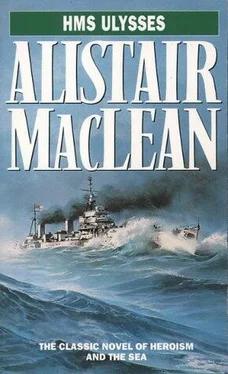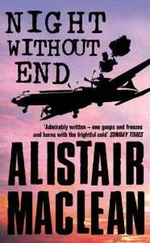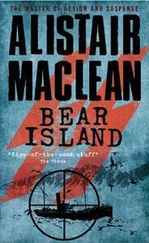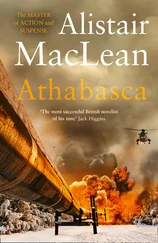1 ...7 8 9 11 12 13 ...79 "That bumptious young fool, Carslake? Oh, I know all right. My spies are everywhere. Bloke's a bloody menace... However, my story. Young Nicholls was doing some path, work late last night in the dispensary, on T.B. specimens. Two, three hours in there. Lights out in the bay, and the patients either didn't know or had forgotten he was there. Heard Stoker Riley, a real trouble-maker, that Riley, and the others planning a locked door, sit-down strike in the boiler-room when they return to duty. A sit-down strike in a boiler-room. Good lord, it's fantastic! Anyway, Nicholls let it slide, pretended he hadn't heard."
"What!" Vallery's voice was sharp, edged with anger. "And Nicholls ignored it, didn't report it to me! Happened last night, you say. Why wasn't I told, immediately? Get Nicholls up here, now. No, never mind." He reached out to pick up the bridge phone. "I'll get him myself."
Brooks laid a gauntieted hand on Vallery's arm.
"I wouldn't do that, sir. Nicholls is a smart boy, very smart indeed. He knew that if he let the men know they had been overheard, they would know that he must report it to you. And then you'd have been bound to take action, and open provocation of trouble is the last thing you want. You said so yourself in the wardroom last night."
Vallery hesitated. "Yes, yes, of course I said that, but, Well, Doc., this is different. It could be a focal point for spreading the idea to------"
"I told you, sir," Brooks interrupted softly. "Johnny Nicholls is a very smart boy. He's got a big notice, in huge red letters, outside the Sick Bay door: 'Keep clear: Suspected scarlet fever infection.' Kills me to watch 'em. Everybody avoids the place like the plague. Not a hope of communicating with their pals in the Stokers' Mess."
Tyndall guffawed at him, and even Vallery smiled slightly.
"Sounds fine, Doc. Still, I should have been told last night."
"Why should you be woken up and told every little thing in the middle of the night?" Brooks's voice was brusque. "Sheer selfishness on my part, but what of it? When things get bad, you damn' well carry this ship on your back, and when we've all got to depend on you, we can't afford to have you anything less than as fit as possible. Agreed, Admiral?"
Tyndall nodded solemnly. "Agreed, O Socrates. A very complicated way of saying that you wish the Captain to have a good night's sleep. But agreed."
Brooks grinned amiably. "Well, that's all, gentlemen. See you all at the court-martial, I hope." He cocked a jaundiced eye over a shoulder, into the thickening snow. "Won't the Med. be wonderful, gentlemen?" He sighed and slid effortlessly into his native Galway brogue. "Malta in the spring. The beach at Sliema-wmi the white houses behind-where we picnicked, a hundred years ago. The soft winds, me darlin' boys, the warm winds, the blue skies and Chianti under a striped umbrella------"
"Off!" Tyndall roared. "Get off this bridge, Brooks, or i'll------"
"I'm gone already," said Brooks. "A sit-down strike in the boiler-room! Ha! First tiling you know, there'll be a rash of male suffragettes chaining themselves to the guard rails I" The gate clanged shut behind him.
Vallery turned to the Admiral, his face grave.
"Looks as, if you were right about that comstack, sir."
Tyndall grunted, non-committally.
"Maybe. Trouble is, the men have nothing to do right now except brood and curse and feel bitter about everything. Later on it'll be all right, perhaps."
"When we get-ah-busier, you mean?"
"Mmm. When you're fighting for your life, to keep the ship afloat, well, you haven't much time for plots and pondering over the injustices of fate. Self-preservation is still the first law of nature... Speaking to the men tonight Captain?"
"Usual routine broadcast, yes. In the first dog, when we're all closed up to dusk action stations." Vallery smiled briefly. "Make sure that they're all awake."
"Good. Lay it on, thick and heavy. Give 'em plenty to think about-and, if I'm any judge of Vincent Starr's hints, we're going to have plenty to think about this trip. It'll keep 'em occupied."
Vallery laughed. The laugh transformed his thin sensitive face. He seemed genuinely amused.
Tyndall lifted an interrogatory eyebrow. Vallery smiled back at him.
"Just passing thoughts, sir. As Spencer Faggot would have said, things have come to a pretty pass... Things are bad indeed, when only the enemy can save us."
CHAPTER THREE
MONDAY AFTERNOON
ALL DAY long the wind blew steadily out of the nor'-nor'-west. A strong wind, and blowing stronger. A cold wind, a sharp wind full of little knives, it carried with it snow and ice and the strange dead smell born of the forgotten ice caps that lie beyond the Barrier. It wasn't a gusty, blowy wind. It was a settled, steady kind of wind, and it stayed fine on the starboard bow from dawn to dusk. Slowly, stealthily, it was lifting a swell. Men like Carrington, who knew every sea and port in the world, like Vallery and Hartley, looked at it and were troubled and said nothing.
The mercury crept down and the snow lay where it fell. The tripods and yardarms were great, glistening Xmas trees, festooned with woolly stays and halliards. On the mainmast, a brown smear appeared now and then, daubed on by a wisp of smoke from the after funnel, felt rather than seen: in a moment, it would vanish. The snow lay on the deck and drifted. It softened the anchor-cables on the fo'c'sle deck into great, fluffy ropes of cotton-wool, and drifted high against the breakwater before 'A' turret. It piled up against the turrets and superstructure, swished silently into the bridge and lay there slushily underfoot. It blocked the great eyes of the Director's range-finder, it crept unseen along passages, it sifted soundlessly down hatches. It sought out the tiniest unprotected chink in metal and wood, and made the mess-decks dank and clammy and uncomfortable: it defied gravity and slid effortlessly up trouser legs, up under the skirts of coats and oilskins, up under duffel hoods, and made men thoroughly miserable. A miserable world, a wet world, but always and predominately a white world of softness and beauty and strangely muffled sound. All day long it fell, this snow, fell steadily and persistently, and the Ulysses slid on silently through the swell, a ghost ship in a ghost world.
But not alone in her world. She never was, these days. She had companionship, a welcome, reassuring companionship, the company of the 14th Aircraft Squadron, a tough, experienced and battle-hardened escort group, almost as legendary now as that fabulous Force 8, which had lately moved South to take over that other suicide run, the Malta convoys.
Like the Ulysses, the squadron steamed NNW. all day long. There were no dog-legs, no standard course alterations. Tyndall abhorred the zig-zag, and, except on actual convoy and then only in known U-boat waters, rarely used it. He believed-as many captains did-that the zig-zag was a greater potential source of danger than the enemy. He had seen the Curayoa, 4,200 tons of cockle-shell cruiser, swinging on a routine zig-zag, being trampled into the grey depths of the Atlantic under the mighty forefoot of the Queen Mary. He never spoke of it, but the memory stayed with him.
The Ulysses was in her usual position, the position dictated by her role of Squadron flagship, as nearly as possible in the centre of the thirteen warships.
Dead ahead steamed the cruiser Stirling. An old Cardiff class cruiser, she was a solid reliable ship, many years older and many knots slower than the Ulysses, adequately armed with five single six-inch guns, but hardly built to hammer her way through the Arctic gales: in heavy seas, her wetness was proverbial. Her primary role was squadron defence: her secondary, to take over the squadron if the flagship were crippled or sunk.
Читать дальше
Конец ознакомительного отрывка
Купить книгу












